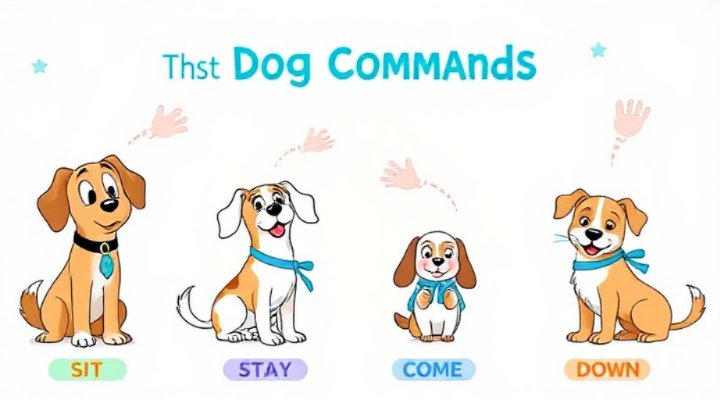Welcome to the wonderful world of dog ownership! If you’re new to dog training for beginners, you might feel a mix of excitement and nervousness. Don’t worry – every expert trainer was once a beginner too. This comprehensive guide will walk you through everything you need to know to build a strong foundation with your new furry friend.

Understanding Your Dog’s Behavior
Before diving into commands and tricks, it’s crucial to understand how dogs think and communicate. Dogs are pack animals by nature, which means they respond well to clear leadership and consistent rules. For example, when your puppy jumps on you, they’re not being ‘bad’ – they’re simply expressing excitement in a doggy way.
According to the American Veterinary Medical Association, understanding canine body language is key to successful training. Watch for signs like ear position, tail wagging, and posture to gauge your dog’s emotional state during training sessions.

Essential Commands Every Dog Should Know
Start with these fundamental commands that form the building blocks of beginner dog training:
- Sit: The foundation for all other commands
- Stay: Crucial for safety in various situations
- Come: Potentially life-saving recall command
- Leave it: Prevents picking up dangerous items
- Down: Helps manage excitement and energy
For more advanced techniques, check out our guide on Pet Training: A Comprehensive Guide from Basics to Advanced.

Positive Reinforcement: The Gold Standard
Modern dog training emphasizes positive reinforcement – rewarding desired behaviors rather than punishing unwanted ones. This method builds trust and makes learning fun for your dog. Use small, tasty treats initially, then gradually phase them out as the behavior becomes consistent.
Remember that timing is everything. The reward must come immediately (within 1-2 seconds) after the desired behavior to create a clear association. As your dog progresses, you can vary the rewards – sometimes treats, sometimes praise, sometimes play.
Common Training Mistakes to Avoid
Even with the best intentions, new owners often make these errors in beginner dog training:
- Inconsistent commands (using different words for the same action)
- Training sessions that are too long (keep them under 15 minutes)
- Getting frustrated (dogs sense your emotions)
- Expecting too much too soon (each dog learns at their own pace)

Socialization: More Than Just Making Friends
Proper socialization is a critical but often overlooked aspect of dog training for beginners. The American Kennel Club recommends exposing puppies to various people, animals, and environments during their critical socialization period (3-16 weeks).
Consider enrolling in a local training class where your dog can interact with others in a controlled environment. Remember, socialization isn’t just about play – it’s about teaching your dog to remain calm and confident in new situations.
House Training Basics
One of the first challenges new owners face is housebreaking. The key is establishing a consistent routine:
- Take your puppy out first thing in the morning
- After meals and naps
- Before bedtime
- Every 1-2 hours for young puppies
For older dogs having accidents, our House Training an Older Dog guide offers specialized advice.

Patience and Persistence Pay Off
Remember that dog training is a journey, not a destination. Some days will feel like breakthroughs, others like setbacks. That’s completely normal. The most important thing is to stay consistent, patient, and positive.
As you progress in your training, you might want to explore more advanced techniques in our Ultimate Guide to Pet Training.
For additional resources, the American Kennel Club offers excellent training guides and videos.
Related Keywords:
basic dog obedience, puppy training tips, how to train a dog, dog training techniques, first-time dog owner guide

